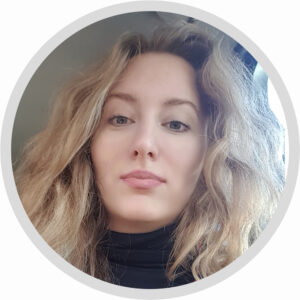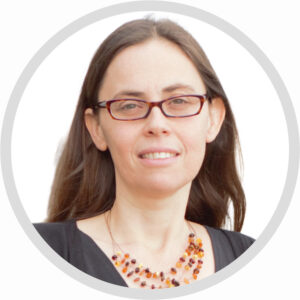The fashion industry keeps on reinventing itself. Not only now during fashion week season with all the shows and collections but in a broader sense. It remains to be seen how digitization will influence fashion. The Polis180 article: Digital Fashion Week – an opportunity or in emergency only? touches on some of these topics. However, the biggest transformation necessary in the fashion industry concerns its sustainability or rather lack thereof. Thankfully, the European Union is at the forefront of innovative legislation to tackle related issues. Together with Dr. Vered Blass, Head of the Innovation Industrial Ecology Lab of Tel Aviv University, I commented on the community-aspect of sustainability in fashion and its potential in tackling one of the biggest challenges in fashion: waste.
The fashion industry’s status as one of the most polluting industries is no longer news. The fact that the fashion industry is responsible for 10% of global annual CO2 emissions initially came as a shock to governments, managers, investors and consumers alike, and spread like wildfire since. The fashion industry is facing a major crisis, for which there is no definitive solution as yet. It is far from sustainable, producing tons of textile waste every year. On a global scale, less than 1% of clothing is recycled back into the fashion industry.
Regulations to manage textile waste are a start – yet insufficient by themselves
The exponential growth of textile waste has not only become a major environmental issue, but also a major economic one. The amount of textile waste has doubled over the last 20 years. In the EU alone, more than $100 billion Euros worth of fabric is wasted every year, not counting the enormous costs of textile waste disposal. Governments worldwide, recognizing an urgent need for action in an ongoing race to save our planet (and money), have introduced regulations to pressure the fashion industry into being more sustainable and efficient with its waste. These regulations vary in their rigor and scope. Two examples are Germany’s „duty of care“ (Obhutspflicht) and France’s Anti-Waste laws; yet all emphasize the birth of a new, sustainability–driven mindset in politics, which finally puts the spotlight on the textile industry. Under the EU’s Waste Directive, EU member states will be obligated to set up separate textile waste collection by 2025. This, in turn, will put pressure on textile and waste management companies as well as municipal authorities to implement textile waste collection and management systems.
In Israel, in contrast, there are currently no regulations covering textile take-back schemes or manufacturer responsibility for reducing textile waste. While the Ministry of Environmental Protection has signaled its intent to introduce an extended producer responsibility law in 2025, no concrete steps have been taken so far. Moreover, while Israel unarguably suffers from textile over-consumption, official data on textile waste is sorely lacking. The most recent available data was collected in 2012, when textile waste comprised an estimated 3% (in weight) or 5% (in volume) of all waste. This lack of data makes it difficult to assess a starting point for tackling the challenge of textile waste in Israel.
Technological and community-centered sustainability initiatives
Global regulatory and economic pressure has given rise to pioneering programs and businesses all over the world that tackle the subject of optimizing textile waste management. One approach is the development of global textile waste marketplaces that make use of machine learning technology. Queen of Raw is an example of such a global marketplace, which has helped businesses save up to 15% on their bottom line. Chemical recyclers like Circ, which raised $8 million at the start of 2021, are breaking into the textile market as well by bringing science-driven innovation to the textile industry. Textile waste is a challenge that both tech and scientific innovators are attempting to solve in pursuit of global sustainability.
The above approaches mostly focus on economic and environmental aspects, and largely neglect the social aspects of holistic sustainability. The Israeli initiative Re-Fresh Global has adopted a particularly interesting approach that incorporates the social dimension as well, by developing a pioneering solution that combines technology and community involvement. Re-Fresh Global creates a franchise system of circular textile microfactories, which allows local communities to actively participate in textile waste management. On the technical side, the process is optimized via the use of integrated technology, proprietary data collection, and an automated management system. The setup of each microfactory is adapted to the local needs, while its staff is recruited from the local community and professionally trained. The training not only provides qualified staff for the microfactories. It also enables members of the local community to acquire an overarching skill set which includes data management and manual recycling, and is pertinent to the circular economy. Such skills are particularly valuable in a changing economic environment, since they help vulnerable members of society avoid falling behind.
A pilot of the Re-Fresh concept has been tested in the Israeli city of Kfar Saba. It has notably outperformed both business and community expectations, unlike many other concepts that look good on paper but don’t translate well into practice. According to Viktoria Kanar, co-founder of the initiative, the Re-Fresh team managed to train 200 women, who then collected 10 tons of textiles. Of these, 38% were resold and 60% more prepped for upcycling by the end of the pilot.
Some of the most successful aspects of the pilot has been effective training and active involvement of the members of the local community, inasmuch as it gave consumers an active, rather than passive, role in textile waste management.
Re-Fresh Global’s systematic approach to staff training and data collection and management ensures the replicability of results across countries and continents. Furthermore, Re-Fresh Global collaborates with Tel Aviv University on designing cutting-edge nano-cellulose recycling technology that uses ozonation and green hydrolysis. This collaboration places the initiative at the forefront of science-led innovation in the field of recycling and repurposing textile waste into new products for various industries.
As the above example demonstrates, the Israeli textile industry has the resources to create a game-changing ecosystem that successfully incorporates economic, environmental and social aspects of sustainability, by combining community involvement with technology and science-driven innovation. Achieving the global goal of a sustainable future requires interdisciplinary collaborations like that in the above example, as well as solutions that build on extensive inclusion of local communities and a profound understanding of their needs.
This Commentary was first published in the framework of the European-Israeli Forum for Environment and Sustainability, a collaboration between the Israel Public Policy Institute (IPPI) and the Heinrich Böll Stiftung Tel Aviv.
Polis Blog ist eine Plattform, die den Mitgliedern von Polis180 & OpenTTN zur Verfügung steht. Die veröffentlichten Beiträge stellen persönliche Stellungnahmen der AutorInnen dar. Sie geben nicht die Meinung der Blogredaktion oder von Polis180 e.V. wieder.
Bildquelle via unsplash
 Nicole is an entrepreneur and research associate at the Innovation in Industrial Ecology Research Lab (IIE) at Tel Aviv University. Her work focuses on the interplay of sustainability and digitisation, especially focusing on new business models and AI-supported activities. She received her PhD in Economics from the University of Wuppertal and is part of the Digital Transformation and Cyber Security program at Polis180.
Nicole is an entrepreneur and research associate at the Innovation in Industrial Ecology Research Lab (IIE) at Tel Aviv University. Her work focuses on the interplay of sustainability and digitisation, especially focusing on new business models and AI-supported activities. She received her PhD in Economics from the University of Wuppertal and is part of the Digital Transformation and Cyber Security program at Polis180.
 Vered Blass is a senior lecturer at the Porter School of the Environment and Earth Sciences in Tel Aviv University and involved in collaborative research with scholars from multiple universities in the U.S. and Europe. Her academic research has focused on the interface of the industrial ecology, circularity, and management science disciplines. She has established and currently leads the industrial ecology research group in TAU.
Vered Blass is a senior lecturer at the Porter School of the Environment and Earth Sciences in Tel Aviv University and involved in collaborative research with scholars from multiple universities in the U.S. and Europe. Her academic research has focused on the interface of the industrial ecology, circularity, and management science disciplines. She has established and currently leads the industrial ecology research group in TAU.
Zurück
